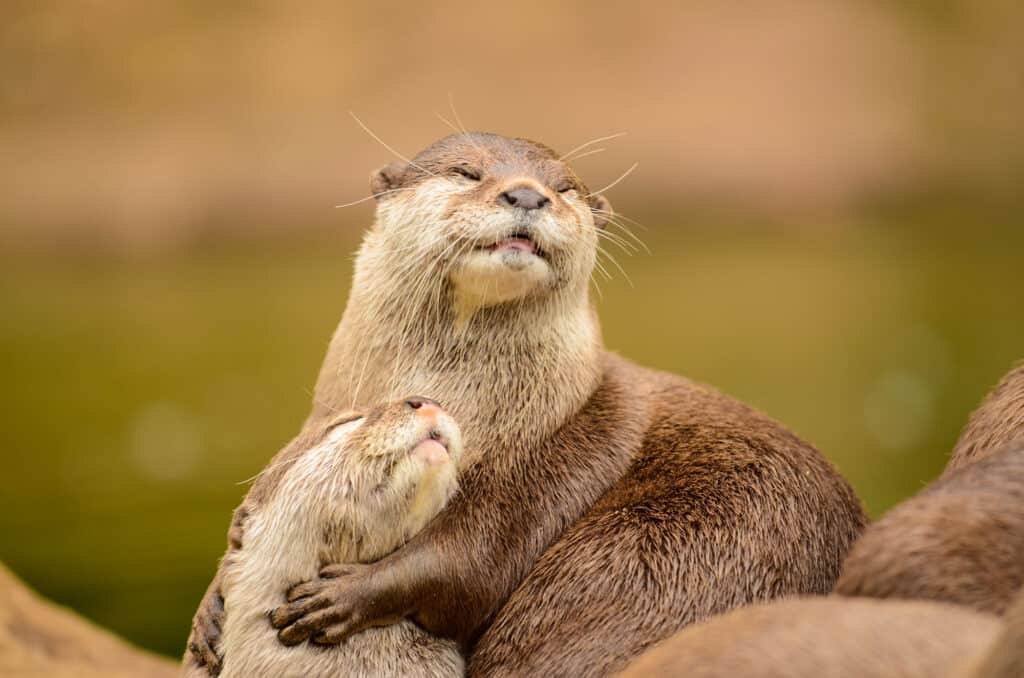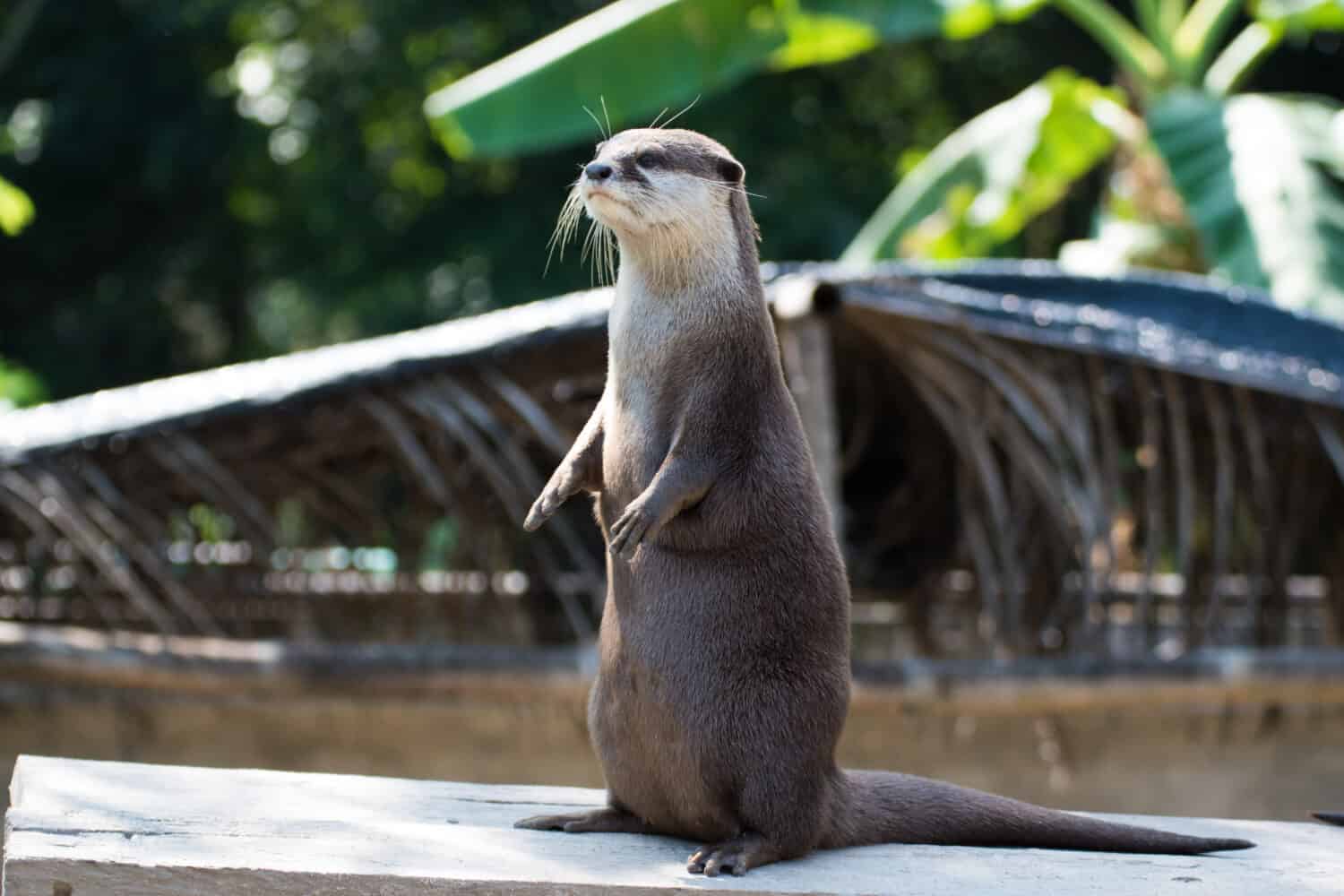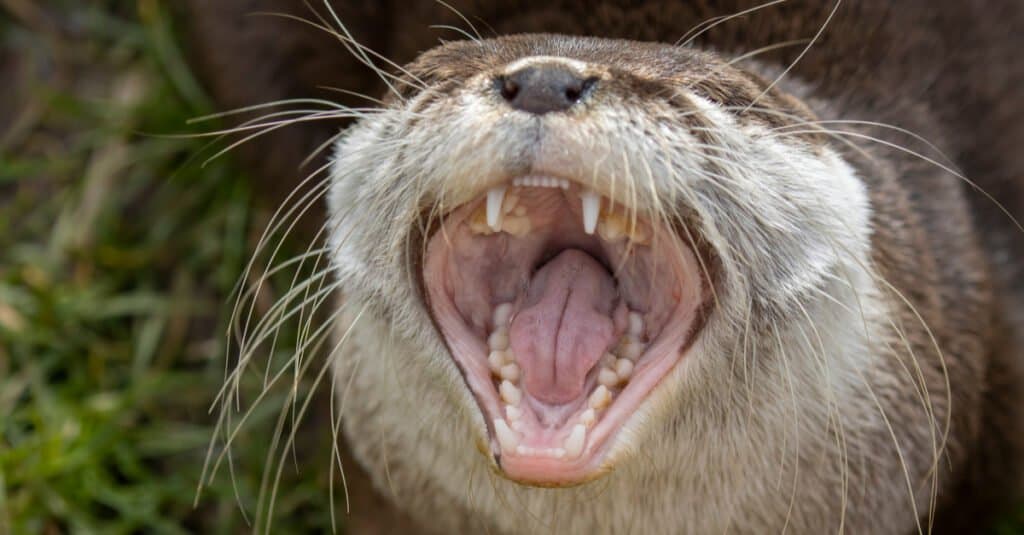Otters are adorable animals that hold hands, swim around, and constantly look like they are having fun. They are intelligent, playful, and social creatures, and they can easily charm anyone with their antics. All that cuteness aside, however, do they make good pets? Today, we will explore the pros and cons of keeping otters as pets, and what you need to know before you decide to adopt one.
Can You Keep Otters As Pets?

Keeping an
otter
as a pet is illegal in most of the US and Europe.
©iStock.com/likster
The answer to this question exclusively depends on where you live and what kind of otter you want to keep. In many countries, including the UK, Japan, and the US, owning native otters is illegal or highly regulated. Most of the time, this is because otters are endangered or threatened, and keeping them as pets would be counterproductive for their continued protection from poaching and habitat loss. Unfortunately, some people still smuggle otters to sell them as pets, especially the Asian small-clawed otter, which is the smallest and most common species kept in captivity. In some states, such as Missouri, North Carolina, Florida, and Nebraska, you may be able to own an otter with the proper permits and licenses, but before you do so, you should consider the challenges and responsibilities of caring for an otter. Otters, as cute as they are, are not intended to be kept as regular pets.
The Types of Otters Usually Kept as Pets

The Asian small-clawed otter is heavily trafficked.
©Naiplawan Studio/Shutterstock.com
There are 13 species of otters in the world, but only a few of them are suitable for keeping as pets. The most popular one is the Asian small-clawed otter, which is native to Southeast Asia and can grow up to 2 feet long and weigh up to 11 pounds. Aside from being small, they are extremely social and live in family groups of up to 15 members. Another species that is sometimes kept as a pet is the North American river otter, a much larger species native to North America that can grow up to 4 feet long and weigh up to 30 pounds. There are a few other species of otters, but they are rarely if ever, kept as regular pets outside of a zoo. In recent years, the Asian small-clawed otter has seen a massive boom in black-market trading across Southeast Asia.
5 Pros to Keeping Otters as Pets
Otters can be very entertaining for people who have the time, space, money, and expertise to care for them properly. That being said, keeping one is something that should be left to the professionals, not someone with a bathtub who thinks they are cute. Some of the fun things that having an otter can provide are:
- They are extremely intelligent and can learn tricks and commands.
- They are affectionate and can bond with their owners and other animals, although they should always have a larger family unit of other otters.
- They are playful and can be downright amusing, just like a dog or cat.
- They are curious and love to be adventurous.
- They are beautiful and elegant animals.
5 Cons to Keeping Otters as Pets
Otters can also be very challenging and demanding pets for most people unprepared or equipped to meet their needs. Some of the drawbacks of keeping otters as pets are:
- They are noisy and can make loud whistling or screeching noises that can disturb neighbors or other pets.
- They are very smelly and can produce a strong odor that can permeate a home or an enclosure. They also mark their territory by smearing their feces around, something you really don’t want to happen in your house.
- They can be aggressive and can bite or scratch when they are stressed or unhappy. It’s important to remember they are wild animals, not tame pets.
- They are messy and can be destructive to furniture, carpets, plants, or other items. They are also hard to housetrain and likely won’t care about pooping all over their enclosure and your home.
- They are very expensive and cost thousands of dollars to buy and maintain. They also require a lot of food, water, veterinary care, toys, enrichment, etc.
Should You Keep an Otter as a Pet?

Otters are wild animals and should not be kept as pets.
©Paul A Carpenter/Shutterstock.com
The bottom line is that otters are not meant to be kept as pets. They are wild animals that belong in their natural habitats where they can thrive and contribute to the ecosystem. Keeping them captive can cause stress, anxiety, boredom, frustration, illness, injury, or death. It can also harm their wild populations by reducing their genetic diversity and increasing their vulnerability to threats.
Unless you have a special license or permission from an organization or authority, you should not keep an otter as a pet. Instead, you should love their cuteness from a distance or support their conservation efforts by donating or volunteering for wildlife groups or sanctuaries.
Do Otters Attack Humans?

While it is possible an otter could attack you, the chances are slim to none of it happening.
©Colin Seddon/Shutterstock.com
It’s natural to be concerned around wild animals as to whether your safety is at risk. There have been documented attacks on humans by otters, but the truth is, they are very rare, in fact, the reported instances of otters of any species attacking people is 57 since 1857. To put that into perspective, you’d be more likely to win the lottery than to be attacked by an otter.
While the attacks are rare, they aren’t viewed as abnormal. In fact, a spokesperson for the Montana Fish, Wildlife, and Parks spoke on the subject after an otter attack was reported in 2021 on the Big Hole River, stating that otters can be aggressive if protecting a den or food, so the behavior isn’t viewed as worthy of investigation by wildlife officials.
The photo featured at the top of this post is © iStock.com/Rixipix
Thank you for reading! Have some feedback for us? Contact the AZ Animals editorial team.






